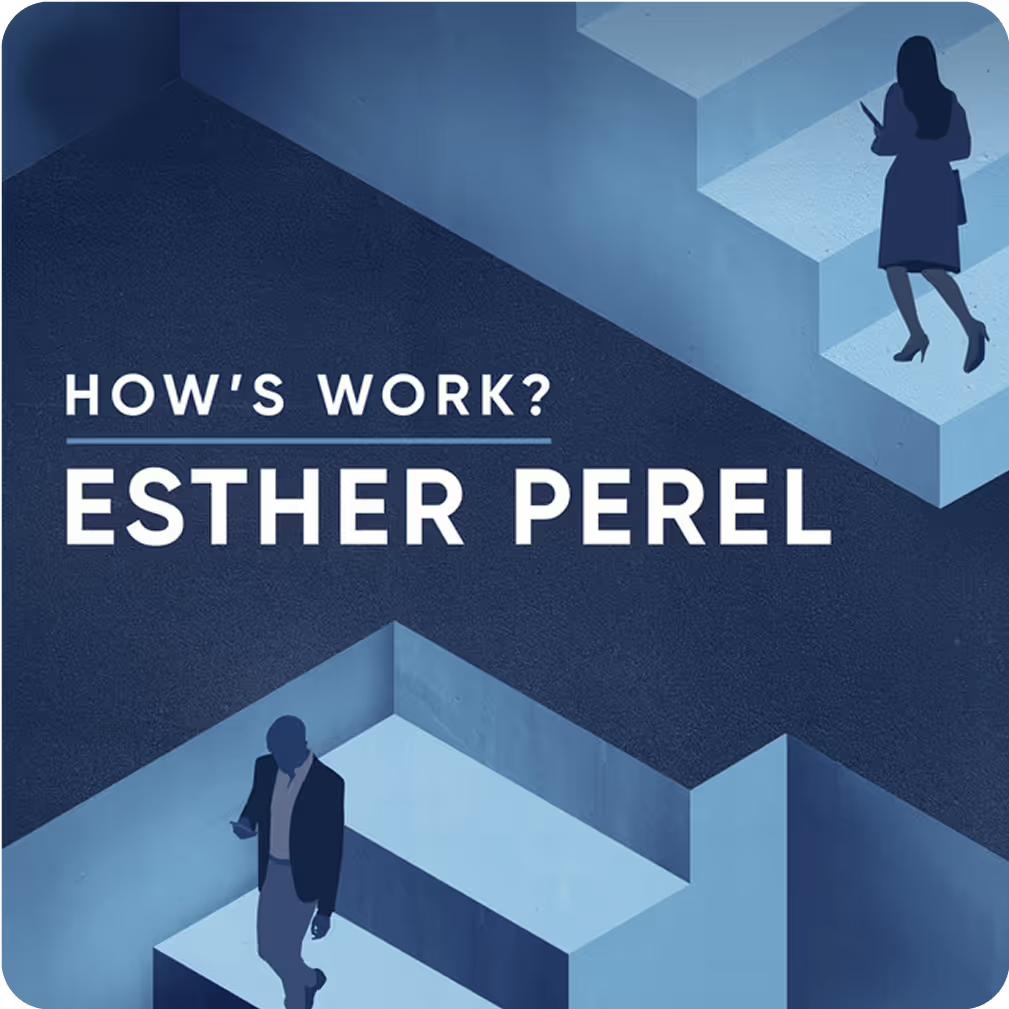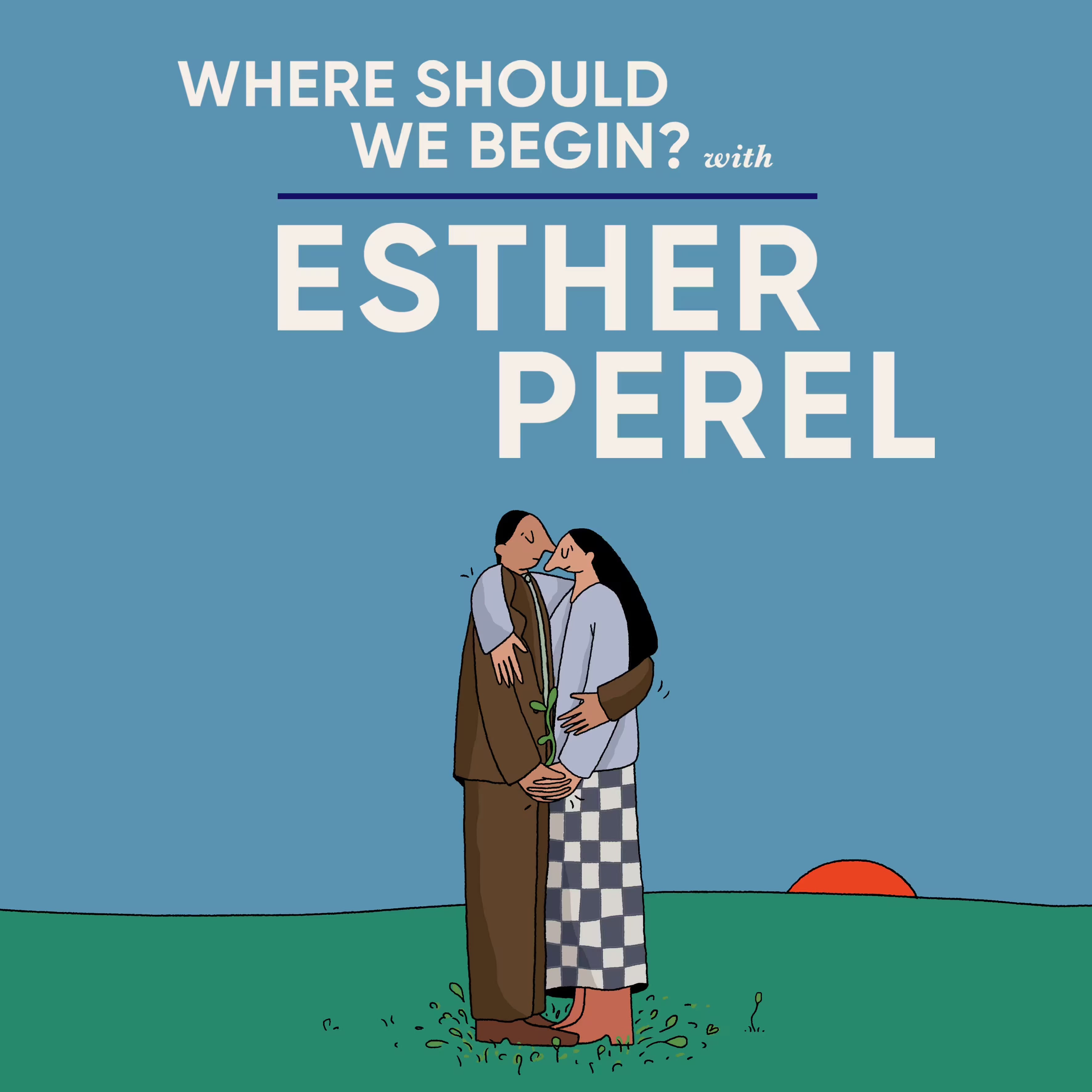
New Episodes Weekly
Where Should We Begin? with Esther Perel
Join Esther in her office every Monday to listen in as real couples in search of help bare the raw, intimate, and profound details of their stories.
Listen On:
Watch On:
Esther's Office Hours
Get early episodes, exclusive content and ad-free access to Esther’s insights.
All Episodes
Thank you! Your submission has been received!
Oops! Something went wrong while submitting the form.

Limited Series
How's Work?
with Esther Perel
Esther brings a new perspective to the invisible forces that shape workplace dynamics, connection, and conflict through one-time therapy sessions with coworkers, cofounders, and colleagues.
Listen Now:
Where Should We Begin?
A Game of Stories

New
Where Should We Begin?
At Work
At Work
New
Where Should We Begin?
At Work
At Work
Improve team dynamics with Esther Perel’s renowned card game—now available for the workplace.

Discover more from Esther on Substack.
Explore articles and resources to help you find aliveness and vitality in your relationships.
Subscribe on SubstackA live event with Esther
Sessions Live 2026
An unforgettable two-day event on relationships, love, and desire
May 15-16, 2026 | Online & In-Person in New York City
Get Tickets




“I admire, respect, and appreciate the work of Esther and the amazing speakers she invites.”





“Sessions Live inspired me to think more broadly about my own cases."





“The amount of empathy, honesty, and illuminating perspectives floored me. Highly recommend.”

_text-2.avif)














.svg)





